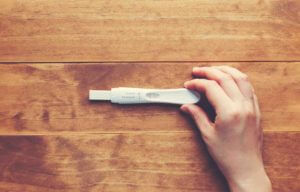Breastfeeding dementia is the term used to describe the condition of many mothers who are often very forgetful in the first period after the birth of their baby. Fortunately, this has nothing to do with real dementia, in which memory and the ability to think decline. Unlike dementia, the memory deficit is not permanent and often subsides after a few months.
You get questions like “Did I really turn off the stove?” or you forget your EC card at the checkout while shopping? In the first weeks and months after giving birth, mothers are very forgetful. Many mothers notice this forgetfulness during the time of breastfeeding. Here you can find out everything there is to know about this forgetfulness.
Studies have shown that during the breastfeeding period, the concentration and memory capacity of many mothers decreases or is reduced. So you’re not imagining breastfeeding dementia. The memory capacity is roughly equivalent to that of a 60-year-old woman.
However, it is not a real disease, so you can relax. After about a year, your brain will function normally again.
Table of contents
Do Only Breastfeeding Mothers Suffer From Breastfeeding Dementia?
Breastfeeding dementia also affects moms who bottle-feed their baby. The cause of breastfeeding dementia is not due to breastfeeding, but to lack of sleep, stress and the changed hormone balance in the first months. To some extent, men also suffer from breastfeeding dementia.
How Breastfeeding Dementia Occurs
There are a lot of factors that are responsible for breastfeeding dementia. The woman is in a state of emergency in the months after the birth of her child. The rhythm is thrown off on a daily basis. If one gets too little sleep over a long period of time, memory performance leaves much to be desired. Also responsible for breastfeeding dementia is the increased hormone level after birth. It ensures that the body processes the birth well and the birth pains are erased from memory. According to experts, another cause of breastfeeding dementia can be a flooding of feelings such as joy and fear. Due to this flooding of emotions, the brain is prevented from thinking logically and quickly blocks out unimportant things.
The Following Tips Can Help You With Pregnancy Or Breastfeeding Dementia

- To prevent pregnancy dementia, pregnant women should get enough rest and sleep. Ideally, new mothers should take a nap during the day when the baby is sleeping. The desire for sleep is still very high in most babies in the first few weeks, and you should definitely take advantage of this time.
- Think carefully about which data is really important and how much you want to do in one day. Do not overexert yourself besides enough sleep, our brain also needs a balanced diet with lots of vitamins. Almonds and walnuts are great for a healthy snack in between meals. Several small meals a day are also recommended. Also, always make sure that you drink at least 2 liters of water per day.
- It will be hard for you, but cleaning up, doing laundry, and vacuuming can wait for a day or be divided among the family.
- To remember important appointments, write small notes on post-its. Be sure to post the notes in your field of vision, such as on the front door or on the refrigerator. A blackboard in the hallway or kitchen can also help you by writing down important things.
- For switching off and relaxation you can provide with a sufficient movement or sport. A short walk in the fresh air is usually enough.
- Fordre your head out by reading a newspaper article or doing a crossword puzzle between all the stress.
Hormone Balance And Breastfeeding Dementia
After giving birth, the mother’s brain secretes more of the hormone oxytocin. This hormone is not only important for milk production, but also for the mother to concentrate fully on her child. Often, mothers then simply ignore rather unimportant things.
The altered hormone balance is also responsible for the so-called nesting instinct or the frequent urge to clean in mothers. Constantly rearranging the furniture is therefore quite normal. If you share your feelings, worries, and wishes with your partner, it will be easier for him to understand when it is time to move the chair to another corner of the room.
Sleep Deprivation And Breastfeeding Dementia
In a sleep laboratory, it was found that people whose deep sleep was repeatedly interrupted suffer more from concentration difficulties and memory problems. So-called lactation dementia is therefore a consequence of sleep deprivation and a lack of rest periods. When your sleep rhythm and your baby’s sleep rhythm have adjusted to each other, you should feel an improvement in your memory.
Tip: If you sleep in the same room with your baby, you won’t have to walk so far at night to nurse him and you can do it half asleep. That way, your night’s rest won’t be too disturbed.
Dad Helps Out!
When mom forgets something again, it’s usually dad who can’t hide a smile or shakes his head. You’ll get rid of the symptoms quickly if your husband takes some household chores off your hands. When your baby accepts the bottle, dad can get up in the night and you get your well-deserved sleep. The same goes for friends and grandparents. Get relief support. When you’re exhausted, get help and support.














1 thought on “Breastfeeding Dementia”